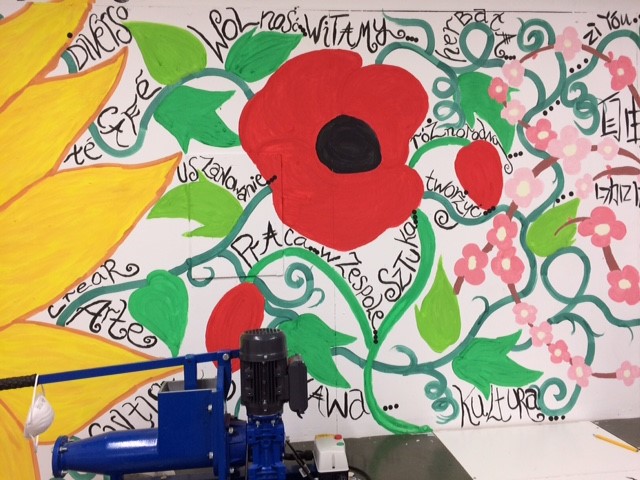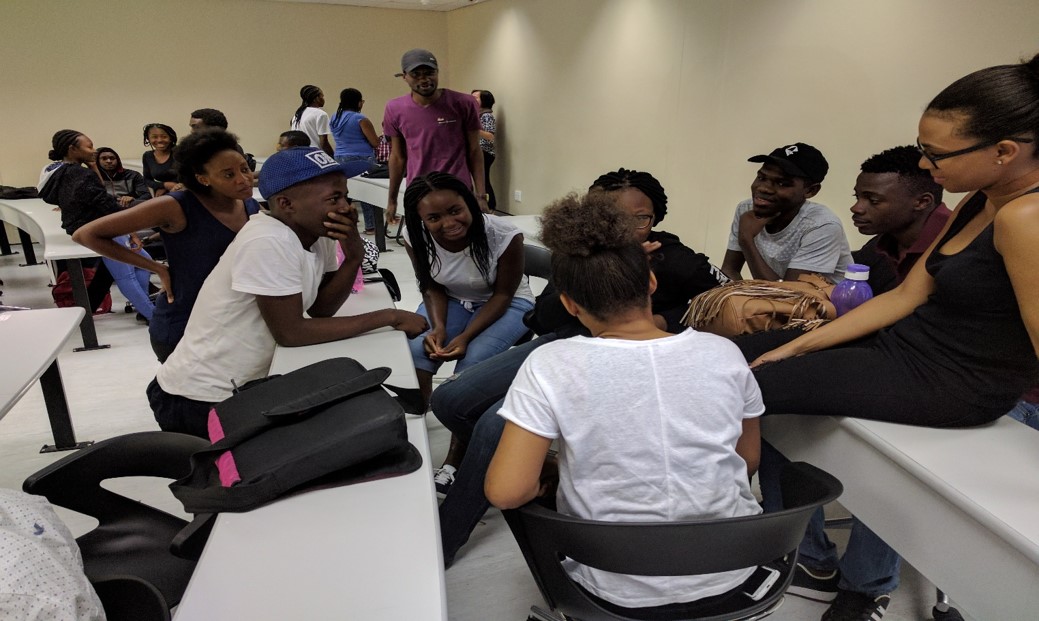Transnationalizing Modern Languages: Reframing language education for a global future
In a world that is changing with increasing rapidity, is our approach to the study of languages and cultures adequate to the challenges we face?
About the research
Language education and the disciplinary identity of Modern Languages (MLs) have been the focus of a great deal of attention in the UK. The decline in recruitment in MLs at school and university level, with the potential societal consequences of this trend, has led to a number of policy statements by public bodies such as the British Academy and programmes like the AHRC’s Open World Research Initiative.
The Transnationalizing Modern Languages (TML) project, initiated 2014, has brought together an international team of researchers and practitioners to address key issues in language and culture education. Starting from the forms of mobility that have defined the development of modern Italian cultures across the globe, the project has engaged with cultural associations, schools, policy-makers and individuals in an exploration of heritage, cultural memory, and educational practices, carrying out work in the UK, Italy, South America, Australia, Ethiopia, the USA, and Namibia.
This report calls for the reframing of the study of MLs in Higher Education in the UK and, more broadly, of approaches to the study of languages and cultures.
Key Issues in Language Education
Within a context of declining recruitment in MLs at school and university, we have isolated three issues that urgently need to be addressed:
1. The overly direct association between language and nation needs to be challenged. This association sustains the perception of monolingualism as the norm and ignores the fact that large sections of the UK’s population, including sign language users, have a wide range of language abilities. It also undervalues the agility with which people move between and translate languages and cultures.
2. The perception that ‘everyone speaks English’ creates the notion of English as a ‘neutral’ lingua franca. This, in turn, promotes a view of the world in which linguistic and cultural differences are erased and everyone speaks the
same language and shares the same culture.
3. Language learning is often seen as the acquisition of a set of skills and this suggests that languages can be learnt with little reference to the cultures of which they are part. Language learning needs instead to be seen as an intrinsic part of the development of cultural literacy – the understanding of the interaction of the cultural processes that surround us and which create the environments in which we live and work.
TML Case Studies
The TML team has been working within Higher Education, with schools and in the wider community.
In HE, we are promoting a reframing of MLs that, instead of focussing on self-contained national traditions, concentrates on the study of languages, cultures and their interactions. Bringing together an extensive team of researchers, we are producing a series of books with Liverpool University Press that will provide resources for teaching. The series, Transnational Modern Languages, articulates a vision of MLs which is attentive to linguistic and cultural specificity but which does not confine the study of languages and cultures within national borders.
Through intensive work with schools in the UK, and especially in Scotland, TML has promoted an interdisciplinary approach to language education, exploring the re-location of MLs in the curriculum and its integration with other subjects. By engaging with teachers, educational advisers and policy-makers, we promote approaches that invite learners to identify the richness of their local environment as well as their own personal and family history.
Through curriculum development and the creation of teaching resources for subjects such as History and Visual Arts, we promote pedagogical practices which aim to make the presence of all languages evident.
The aim of the TML approach is to:
• valorise the role of languages beyond the language classroom;
• highlight the diversity already present in local communities;
• and reward learners’ ability to move between languages and cultures

TML has engaged with local communities and voluntary associations in the UK, South America, Australia and Italy, paying specific attention to how individuals and groups experience migration and the legacy of migration on subsequent generations. Through workshops on multilingual creative writing, we have engaged directly with community languages (ranging from Arabic to Croatian, Italian, Somali and Yoruba) and seen first-hand how creative processes encourage greater awareness of the linguistic and cultural practices which are part of everyday life.
Global Challenges and the example of Namibia
From 2016 TML has worked collaboratively with the University of Namibia (UNAM) and Cardiff University’s Phoenix Project. Since independence in 1990, Namibia has aimed to sustain its diverse linguistic and cultural heritage, which encompasses both indigenous and ex-colonial languages. The country has also promoted English as the official language and the main vehicle of education.
Today Namibia faces the challenge of maintaining its heritage while also producing a new generation of professionals whose training matches international standards. Creating a sustainable linguistic and cultural ecology is a key goal in order to ensure the country’s continuing development, economic growth, social cohesion and wellbeing.
The ways in which Namibia is addressing language education provide examples from which the UK can benefit. Through co-research and co-production, TML has investigated the role of multilingualism in primary education and in the training of health professionals in Namibia.
The project’s activities have highlighted the need for cross-sector and trans-disciplinary collaborations. The collaboration is producing educational resources aimed at promoting a co-ordinated approach to language policy and education across all levels and age groups, and sensitizing trainees as well as professionals in medicine, law, the media and other key industries about the importance of multilingualism in their fields.
How can we reform language education?
We need joined-up thinking across the educational sector and effective messaging targeted at as broad a spectrum of groups and institutions as possible, focusing on four challenges:
Creating a sustainable linguistic ecology. This entails an effort to make the rich diversity of linguistic and cultural capabilities already present in our societies visible and audible. It also means documenting the value of those capabilities as a resource for individuals and communities.
Building a better narrative for language education. We need an approach that promotes language learning and a heightened understanding of intercultural awareness as a route to social cohesion, creativity, cultural as well as economic growth and well-being. To sensitize both individuals and key stakeholders to the social role played by languages and linguistic practices, we need good stories, convincing data, and better definitions of the interaction between language and culture.
Creating a more flexible approach to language learning. Not everyone needs to attain a high level of fluency in another language, and no one can master all languages. Yet (almost) everyone needs to develop their sensitivity to the variety and significance of language practices. Approaches to language education need to be both responsive to and effective in sustaining existing multilingual capabilities and promoting further language acquisition.
Countering ‘language indifference’. We need to make the work of language and of translation visible. And we need to stress that languages are not neutral but deeply connected to the cultural, political and economic dimensions of social life. We should pay attention to languages across our educational systems and in our everyday practices.

Key recommendations
1. National strategies concerning language education need to acknowledge the multilingual nature of contemporary society and advocate the advantages of developing ‘cultural literacy’ as a key resource to enhance social cohesion.
2. A systematic initiative is needed to create a framework in which policy-makers, local educational authorities, researchers and teachers in Modern Languages, public and community associations, devolved governments, and all
other stakeholders are enabled to engage in a sustained dialogue on effective models of multilingual education.
3. The development of language capabilities should not be confined to the language classroom. Experts in all disciplines need to stress the dangers inherent in research, educational and professional practices which foster an attitude of ‘language indifference’. Teachers of all subjects should be encouraged to value linguistic and cultural diversity, while moving away from a generic and often abstract model of attainment based on the ideal notion of ‘the native speaker’.
4. Policy makers and educators should foreground the interconnected nature of the study of languages and cultures as well as the role of linguistic and cultural literacy as a means of both examining and fostering intercultural
exchange on a global scale.
5. Changes to the curriculum in Higher Education need to be accompanied by the sustained engagement with all levels of education and by initiatives that bring school and university teachers continually into dialogue.
6. Educational institutions, local authorities, community organisations, and employers should harness the creativity inherent in multilingualism and its potential to enhance social cohesion, economic growth and individual as well as
collective wellbeing.
Further information
Transnationalizing Modern Languages (TML), part of AHRC’s ‘Translating Cultures’ theme: https://www.transnationalmodernlanguages.ac.uk/
TML: Working with Schools: https://www.transnationalmodernlanguages.ac.uk/2017/03/21/tml-work-with-drummondandcastlebrae-ch-schools/
‘Transnational Modern Languages’ book series, Liverpool University Press: https://liverpooluniversitypress.co.uk/collections/ro_ series-transnational-modern-languages
‘Moving from a National to a Transnational Curriculum: the Case of Italian Studies’, Charles Burdett, Languages, Society and Policy, July 2018: http://www.meits.org/policy-papers/paper/moving-froma-national-to-a-transnational-curriculum-the-case-ofitalian-st
The Salzburg Statement for a Multilingual World, to which TML contributed, launched February 2018: https://www.salzburgglobal.org/multi-year-series/education.html?pageId=8543
Cultural Literacy in Europe: London Statement: http://cleurope.eu/events/cle-london-2015/london-statement/
Contact the researchers
Prof Charles Burdett: c.f.burdett@bristol.ac.uk
Prof Jennifer Burns: j.e.burns@warwick.ac.uk
Prof Derek Duncan: ded3@st-andrews.ac.uk
Prof Loredana Polezzi: polezzil@cardiff.ac.uk
Authors
Professor Charles Burdett, University of Bristol,
Professor Jennifer Burns, University of Warwick
Professor Derek Duncan, University of St Andrews,
Professor Loredana Polezzi, Cardiff University
